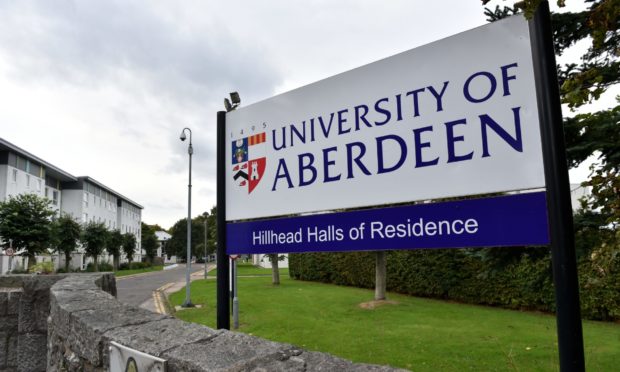A care package to support student wellbeing has been agreed by Scotland’s 19 universities and higher education institutions.
The package, named the Consistent Core of Care for students, has been agreed today to assist students across Scotland and ensure they are aware of the minimum level of support they can receive from universities.
Many of the participating establishments have already agreed to exceed the minimum expectation.
The Consistent Core of Care for students seeks to provide reassurances to students and their families if they have to self-isolate or quarantine in university-owned accommodation.
Regular check-in calls, assistance with food supplies and basic provisions, and the provision of cleaning equipment and laundry support will all be provided to students.
Professor Gerry McCormac, convener of Universities Scotland, said: “Student wellbeing is always the number one priority of universities but this has never been more important than now, as we all experience a new spike in this pandemic.
“We have a duty of care to our students to look after them both physically and mentally and we take that very seriously.
“We hope that this provides greater clarity to students and their loved ones that there is a consistent core to the care and support you can expect if you need to isolate in student accommodation, or if you’re adjusting to a very different student experience. We hope this will provide reassurance and empower students anywhere in Scotland, wherever they are from, to seek the help they need from their institution.
“Front line staff in our universities and in the halls of residence have risen magnificently to the challenge of supporting students in these difficult circumstances. They are key workers in the fight against this virus. University leaders will continue to work closely with staff and student representatives to ensure that these commitments are delivered.”
Participating establishments include:
- University of Aberdeen
- Abertay University
- University of Dundee
- University of Edinburgh
- Edinburgh Napier University
- University of Glasgow
- Glasgow Caledonian University
- Glasgow School of Art
- Heriot-Watt University
- University of the Highlands and Islands
- Queen Margaret University, Edinburgh
- Robert Gordon University
- Royal Conservatoire of Scotland
- Scotland’s Rural College
- University of St Andrews
- University of Stirling
- University of Strathclyde, Glasgow
- University of the West of Scotland
The Open University in Scotland does not have a campus and their 18,000 plus students are distance learners. During the pandemic, the university has strengthened communications, wellbeing and financial support for students.
The agreed code
- Every institution is checking-in, very regularly, on all individual students/student households for those living in university-owned accommodation, where they have told the institution that they are self-isolating. In some cases, this service has been offered but other arrangements have been put in place, at the request of students.
- Every institution is assisting with or providing support to ensure the provision of food supplies and other basic provisions to students who are in need of this whilst quarantining or isolating in university-owned accommodation.
- Every institution is providing cleaning equipment and ensuring that students having to isolate or quarantine in university-owned accommodation have laundry support. In some cases, washing materials are provided, in others a supply of fresh bedding and towels is available, or a laundry service. In some cases, institutions are working as fast as possible to make this service available.
Further support available to students living in university-owned accommodation:
- All students living in university-owned accommodation have, or will have, internet access to ensure they can access learning and support online and connect with family, friends and their student peers.
Support available to all students who are adjusting to a different model of study and wider student experience this semester:
- Every institution has involved their student representatives in their preparations for the start of term, in the context of COVID-19, and will continue to do so in response to an outbreak so that students are sighted on the situation and the response in their institution.
- Mental health is just as important as physical health. Every institution has given specific consideration to student mental health in light of the pandemic and in anticipation of the start of the academic year and has support in place, available through a range of routes. The need to self-isolate is not a barrier to receiving wellbeing and mental health support.
- Every institution has made the wider range of student services accessible online. This includes a range of things like student finance, disability services and study skills.
- Every institution is providing opportunities for online and, where appropriate, physically distanced social, entertainment and relaxation events and activities for students. In most cases this will have been designed and delivered with considerable input from the student association.
- Every institution has given additional consideration to digital poverty within their student community in anticipation of the academic year and has put support in place’.
- All universities will promote their hardship funds and the support available to address digital poverty to their students.
